By the time Baltimore erupted in protest last year, it was as if the nation didn’t know where to begin searching for answers. The death of a man named Freddie Gray while in police custody prompted thousands of residents and activists to flood the streets—buildings and cars burned.
Before Gray, there were others: Trayvon Martin in Sanford, Fla., Eric Garner in Staten Island, N.Y., Michael Brown in Ferguson, Mo., and Tamir Rice in Cleveland. Gray’s death in April 2015 from spinal injuries he suffered while riding in a police van had reopened a wound in the country—his was the latest controversial death involving the police and black men.
Baltimore was angry, and so was the nation. The city’s police countered the protests, some peaceful and others violent, with a full—critics say heavy-handed—response. More than 200 people were arrested, according to the mayor’s office.
At the core of that anger was a deep-seated feeling that the law-enforcement and criminal-justice systems weren’t delivering justice fairly to all Americans.
The deaths and reaction to them have sparked a national conversation about how the police do their jobs and what fair justice would look like. It’s a painful, complicated, and uncomfortable conversation, but one that activists, some in law enforcement, and others on all sides say needs to keep happening if the country wants to find a way forward.
Police Oversight … on Paper
Just a few miles away from the heart of those protests in Baltimore, there is an office—on the ninth floor of a drab, nondescript building—that most of the city doesn’t know exists, and one that the city’s officials have largely ignored for years. Yet it is “designed, at least on paper, to do a lot of things people are crying out for,” says Kisha Brown ’00.
Just a few months before Gray’s death, Brown took the helm of Baltimore’s Office of Civil Rights and Wage Enforcement. It’s an office that, through its Civilian Review Board, holds the enormous task of independently investigating alleged misconduct in the Baltimore Police Department, including the use of excessive force by officers and false arrests. It’s the city’s only mechanism outside the police department itself for investigating the police.
It turns out, though, that tremendous power and responsibility existed just on paper.
“This is supposed to be your police oversight, and it’s nonexistent,” Brown says. When she took the job and at the time of Gray’s death, the office—which serves more than 620,000 residents—had a single investigator, who wasn’t doing his job, according to Brown.
“We had one 69-year-old white male who was scared to go into people’s neighborhoods for fear they would write down his license plate,” she says. “Nothing close to the word ‘investigations’ was happening.” That investigator has since retired.
That was only one challenge Brown faced when she took office. More than half of the nine seats on the Civilian Review Board, which is authorized to process complaints against the police, were vacant. And while the panel can investigate complaints sent to it from the police department’s Internal Affairs Division or those filed to it directly, it has no power to actually discipline officers. It makes recommendations to the police commissioner, who has ultimate say in any action taken on a complaint.
Civilian review boards emerged in the 1990s after the infamous police beating of Rodney King in Los Angeles. Baltimore’s Civilian Review Board was created in 2000 under then-Mayor Martin O’Malley. Its creation followed a hard-fought legislative battle, but critics say it was never given the teeth it needed to fully carry out its purpose.
“You fast-forward 15 years and people were like, ‘Wait a second, what is the Civilian Review Board? Who are they? Are they supposed to be doing something?’” Brown says.
‘This is supposed to be your police oversight, and it’s nonexistent.’
—Kisha Brown ’00
In June 2015, the Baltimore Sun ran an opinion piece from a city resident who blasted the board for “not working today” and calling for changes that would create an “effective and transparent system for investigating civilian complaints of misconduct.” In July 2014, the paper itself editorialized, “A panel so toothless that even its own members publicly wonder whether their efforts are a complete waste of time obviously isn’t accomplishing its mission as a mediator of police-community relations.”
Brown gives a similar assessment.
She says it was an open secret among city officials that the entire process for investigating alleged police misconduct was broken. The Baltimore Police Department received around 1,000 complaints in 2014, she says, but the vast majority were handled by the department’s own Internal Affairs Division. Only 50 to 60 were referred to her office for independent investigation. And, she says, there’s a major conflict of interest in how the system is set up. “One of the things that was most alarming to me was that Internal Affairs [officers could have been] working the beat with officers being investigated,” she says.
Of the resources and power afforded Baltimore’s Civilian Review Board, Brown sums it up this way: “It’s embarrassing.”
She says it also became quickly and painfully clear that her city’s board was under-resourced by national comparison. New York City, a city with more than 13 times the population of Baltimore, is staffed with 110 civilian investigators and processed 357 complaints in February 2016 alone. Ninety-five percent of cases in the city are closed within four months.
Chicago’s review board was founded in 2007, and though it is staffed with investigators, it has received criticism for not working as it should. The board’s supervising investigator was recently fired after he was accused by board officials of having a “clear bias against police.” But since its founding, the board has investigated almost 400 shootings by police and found only one to be unjustified, according to a review by Chicago’s public radio station WBEZ.
St. Louis approved a Civilian Review Board last year after a contentious legislative process.
All are cities with highly charged climates and high stakes. Baltimore and Chicago’s police departments are now under so-called “pattern or practice” investigations by the U.S. Justice Department related to use of force and racial discrimination. And late last year, the Justice Department issued a scathing review of St. Louis’ police department, including more than 100 recommendations for improvement. Several of those centered on how the department handled civilian complaints about police.
Speaking Up
Born to immigrant parents in racially diverse New York, Brown moved to Georgia in middle school. Georgia’s racial climate was “very different” from New York, she says, and she straddled two worlds.
When it came time to pick a college, peers from her private high school were making plans to go to college, mostly in Georgia. Her black friends, who went to public schools, mostly weren’t attending college.
She was undecided herself until her dad came into her room one day. “I’ve never steered you wrong,” he said. “Go to Wellesley.” So she went.
Brown came to Wellesley passionate about social justice, but she says, “I think Wellesley definitely fostered my confidence and nurtured me to be a critical thinker and not afraid to speak my truth, which is a process.”
She attended law school at Georgetown after Wellesley, and then went about the work of social change. She started as staff attorney on the Baltimore City Child Support Project at the Legal Aid Bureau and then became director of government relations for the Greater Baltimore Committee, where she worked on economic and social issues for the area. In 2011, she moved to Maryland’s Office of the Attorney General, where she focused on legislative affairs as well as immigration, mortgage foreclosure, mass incarceration, disability rights, and broader civil rights. She also co-authored the office’s 2014 report on sexual misconduct at Maryland’s colleges and universities.
After spending her career speaking up for the rights of others, she now occupies a role in which she’s empowering Baltimore’s residents to speak their own truth. When she started the job, Brown had three words emblazoned at the front of her office that have become her guiding principles: Empower. Educate. Enforce.
Report to the Mayor
Baltimore Mayor Stephanie Rawlings-Blake told the Sun she hired Brown to bring a “strong focus” to the office.
Hearing Brown wade through her long list of uphill battles makes it clear she knows focusing and reforming the office will be a marathon, not a sprint. But she still conveys a deep sense of urgency to start moving forward. “Being a Wellesley woman, I came in and hit the ground running. My staff looked at me like I was crazy because I was a mile a minute, everywhere doing everything.”
Gray’s death, she says, served as a wake-up call “not just for me but for others—it made apparent the importance of this office.” She says it gave her a push “to preach about the importance of the role of civil rights and of this office.”
Two weeks after violent protests rocked the city, Brown met with the mayor and says she laid out something to this effect: “Here is my quick, 100-day assessment on what is going on in this office. It’s a hot-ass mess.” Brown says she stressed the importance of “really needing to put due weight into the entire office, especially the Civilian Review Board.”
‘Being a Wellesley woman, I came in and hit the ground running.’
—Kisha Brown ’00
In that meeting with the mayor, she says she kept in mind a lesson she had learned from business leaders—the importance of the ask. “If you’re not asking for anything, how are you supposed to get what you want?”
Small Victories
Brown sounds almost wistful talking about the small victories she has had: She knows she is making progress, but so far, they sound like spraying spot cleaner when she’d like to be ripping up the carpet and putting in new floors.
To start, her ask to the mayor did result in an increase in funding—she doesn’t have a final budget for fiscal year 2017 yet, but said the budget for the Civilian Review Board more than doubles, and will go from one full-time staff person to four.
In February, Brown announced a voluntary mediation program that will hear civilian complaints against police. And in addition to adding more heft to investigations, the office is creating new pamphlets and a website, and is planning an open house to introduce the office to the community.
Additionally, she fixed a technicality, which will allow the board to process more civilian complaints. Any that weren’t notarized were being thrown out, which was the correct procedure, but Brown felt that it was wasn’t in keeping with the spirit of the board. Those complaints are now being processed. And she has filled some of the board seats, but three out of nine are still vacant.
All those accomplishments, she says, are about challenging the old system, which can seem “like the stuff you should have already been doing.”
But, she says, “Each day is hopefully a small victory. … When I have one person who is trying to thwart the efforts, then I have another person who’s working hard to push forward.”
The Long View
The way Brown describes her work, it’s clear that it’s about much more than enforcement. “If we really want to get to the root of the problem in Baltimore, it’s not about … making the police get out of their cars and say hello,” she says.
Missing from the national conversation, she says, is an understanding of America’s history of racial discrimination and how it still informs today’s justice system. In Baltimore and nationally, “racist policies and laws and practices were the norm—not just way back in the past, but literally within generations. Our parents’ generation was living in those time periods where it was illegal to sell [homes] to black people, or for black people to live in certain neighborhoods. … Your home could be burned, you could be killed, you could be hung.”
She has also seen marked differences in “quality of service that has been provided to certain neighborhoods and not others, the investment in neighborhoods by governments and businesses. … We turn around and we say, ‘Why does it look like this?’, when we know all the pieces in play.”
Considering all that, Brown says, it’s no wonder there’s anger and resentment.
Though the national conversation has centered on enforcement, she feels that “a big part of the work we’ve lost is around empowerment and education.” One of her major goals now is “empowering folks to feel like, ‘Hey, I have rights. There’s a place I can go to whose job, whose duty it is to protect my rights.’”
For someone who holds such a high-pressure job, Brown has a remarkably cool head and takes a remarkably long view.
One lesson she’s drawn from Wellesley is that the College creates “dynamic women,” but she learned that “you don’t have to be on top of the stage speaking loudly into the mic, pointing your finger, in order to be the most dynamic woman in the room.”
“Being able to be there and be at the table, and offer ideas that possibly would not have been taken into consideration if there wasn’t somebody there to speak up,” she says, equally offers an opportunity to make a difference.
Her position now is also a practice in patience. “The timeline for all of this really is a lot longer than we’re used to,” Brown says. “Our generations are used to coming in and being like, ‘All right, let’s go, got it, done.’”
But she points out that the Civil Rights movement of the 1950s and ’60s actually had roots in the ’20s and ’30s, and activists were planning for the future. “If you’re really committed to the work of civil rights, you can’t be committed to it today,” she says. “You have to be committed to it for the long haul. This is not a quick fix.”

In December 2014, when a grand jury decided not to indict a New York police officer in the death of Eric Garner in Staten Island, N.Y., protesters filled the streets of Baltimore and other cities around the country.
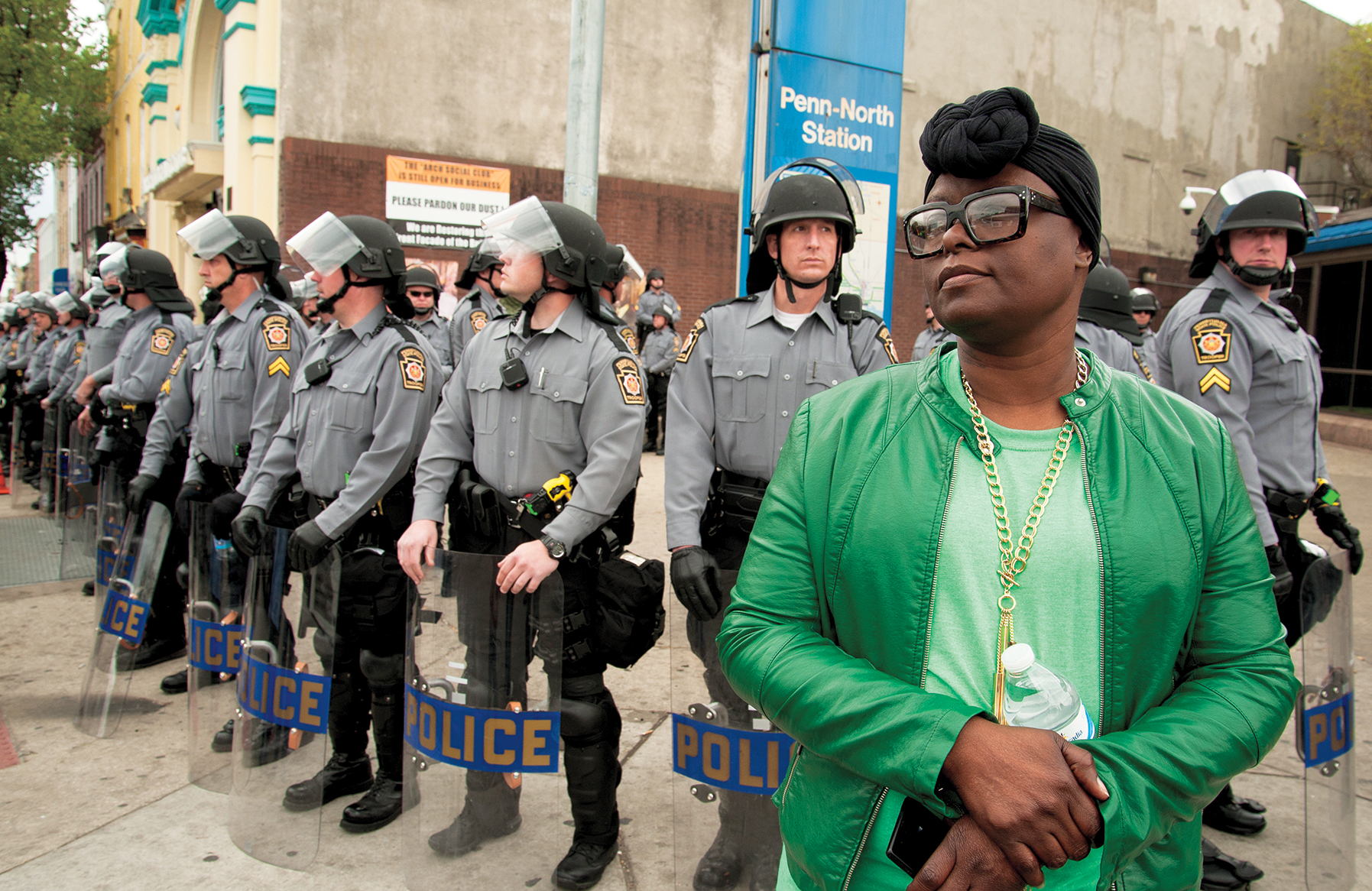
On May 1, 2015, Baltimore residents took to the streets when the Maryland State’s Attorney announced charges against six police officers in the death of Freddie Gray.
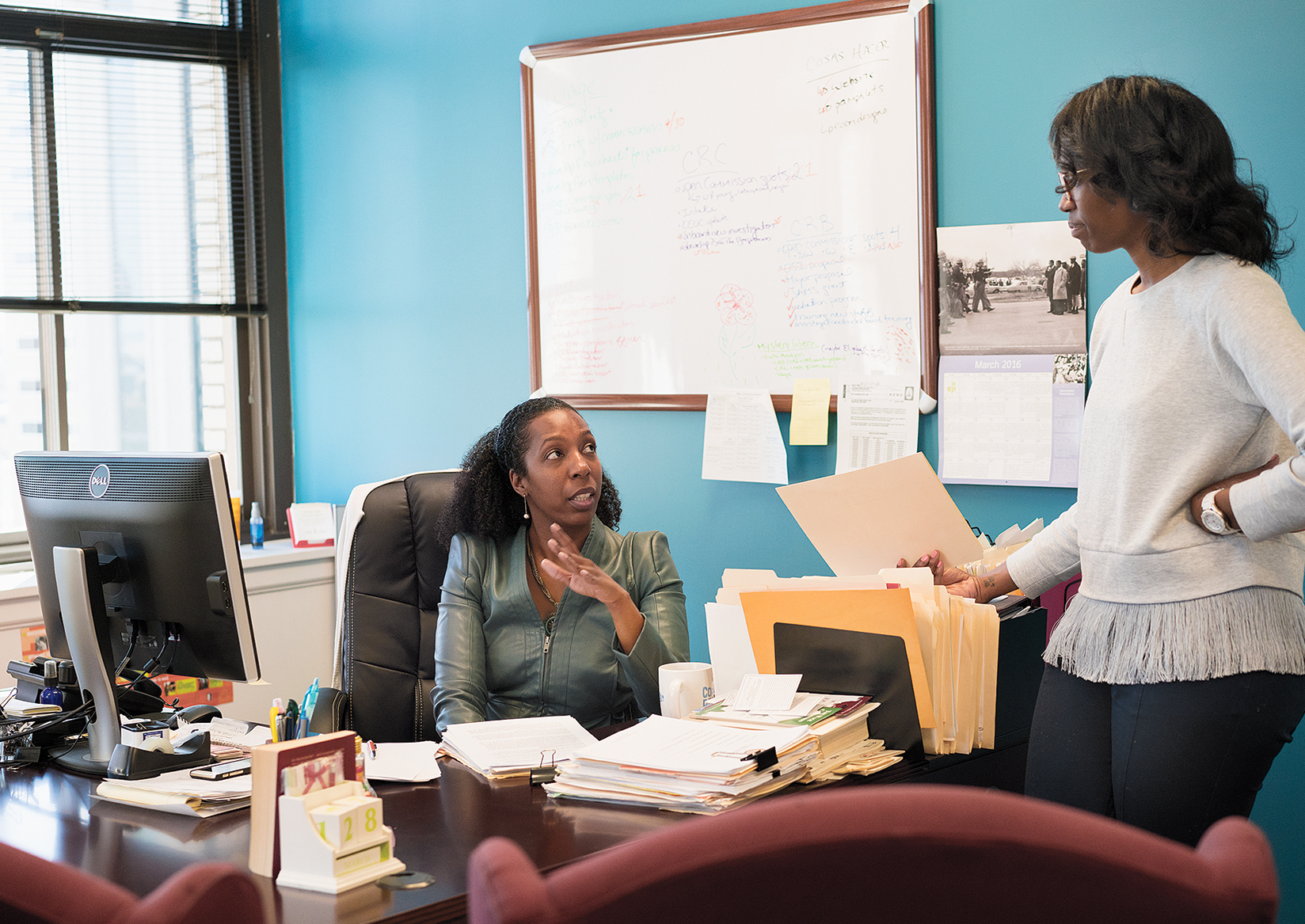
Brown in her Baltimore office
The Way Forward
Since Gray’s death, activists have continued to put pressure on law enforcement as well as political leaders and presidential candidates. Movements like Black Lives Matter, which came together after Martin’s death and has become increasingly organized since, have “completely changed the conversation about police violence and policing in general,” says Michael Jeffries, associate professor of American studies, whose research focuses on race, politics, and identity.
Law enforcement officers say they are feeling that pressure. The controversial deaths have become a flashpoint for race and policing in the country: While activists are calling for deep change, many in law enforcement and around the country do not believe that the deaths indicated a larger problem in policing.
FBI Director James Comey has said that following the death of Michael Brown and other controversial deaths, police officers have reported holding back from fighting crime proactively for fear of being videotaped, disciplined, and otherwise scrutinized. The notion has been dubbed the “Ferguson Effect.” Jeffries and many activists dispute this, though, saying the effect is not as widespread as Comey says it is.
While officers feeling increased pressure may be exactly what activists are calling for, some in law enforcement feel that it actually makes it harder for them to do their jobs well—jobs in which split-second, life-and-death decisions are the norm.
Calling racial bias in policing an “epidemic,” Jeffries says issues between police and communities of color have existed for a long time, but “there’s never been a national conversation the way we’re having now.” He adds that although the “mechanisms” of discrimination have changed, the effects of racial injustice are still felt deeply by African-Americans and evidenced by high unemployment, low median wealth, and high rates of incarceration.
Jeffries cites key moments of engagement that have happened over the past year—President Obama acknowledging the Black Lives Matter movement, presidential candidates sitting down with activists, and police chiefs denouncing mass incarceration—as evidence the conversation is on a whole new level.
To move forward on this issue, Jeffries says, the nation has to talk about why institutional racism exists in the U.S., which brings up complex moral and political questions that aren’t easy to tackle. “The country has never fully committed itself to a long-term effort that would bring about racial justice and social justice,” he says.
‘We’re not totally living in the sunshine, but we’re walking toward the light. Each day is hopefully a small victory.’
—Kisha Brown ’00
Public Pressure: A Game Changer
From where Brown sits, continued pressure from the public is key to helping her do her job. “It’s pressure from the public that got us this far. If this city had never experienced those protests, nobody would remember Freddie Gray’s name. They just wouldn’t. … Pressure is paramount to progress—it is the game changer,” she says.
Like Jeffries, Brown also calls for “serious and honest conversations about the role of police in our communities and in particular communities of color.”
As her words grow strong, you get the sense Brown means more than a conversation around a conference table. “What we are seeing and experiencing, for many, is not new. This brutality and terrorizing of communities has been happening for a very long time. And I use the word ‘terrorizing’ intentionally, because I believe there are communities that are terrorized by the police,” she says. “We have to not just expect but demand better.”
“It’s really about uprooting the system in a way that changes the way that folks do business. The police have been given a certain level of autonomy in our society.” Some of that autonomy, she says, has been deemed necessary and blessed by the public. But still, “there’s really no other profession that has that type of authority and discretion.”
“If we’ve given this entity this type of wherewithal … then they need to be held to a standard that society deems appropriate. And not just a standard for rich, white, or clean, or suburban, or ‘safe’ neighborhoods, but everywhere. And we don’t,” she says. “The results of that are reflected throughout the criminal justice system.”
Some law enforcement agencies are heeding the call to do better—whether on their own or by mandate. The Justice Department has encouraged police departments to institute anti-bias training—New York City will implement it this spring— and departments are boosting efforts to recruit a more racially diverse force.
And it seems that everyone invested in this issue is calling for more conversation, but Brown says for a lot of Americans, these issues are just too easy to ignore. “We don’t really do much about it, because the rest of us get to go home every day. The majority of us get to escape that cycle. We see it on paper, and we’re like, ‘Dannng’ and then we go to Panera and eat lunch.” But she adds, small progress is still progress in her book, even if she is not as far along with the work of change as she expected. “This wasn’t even on anybody’s radar two years ago,” she says.
Brown’s overall outlook is positive.
“Everything happens in due time and order,” she says. She came on board at a time when “the city and the country want better in regards to holding police accountable, protecting people’s civil rights and liberty, and expressing their voice.”
“I look at the work we can do, and I look at the authority that we have by law, and I’m excited about the potential [impact] that this office can have on Baltimore’s economic, social, and criminal justice,” Brown says. “We’re not totally living in the sunshine, but we’re walking toward the light. Each day is hopefully a small victory.”
As Jeffries put it, that’s the lifeblood of social change—even if it doesn’t happen quickly, the key is an ability to imagine a different future.
 Amita Parashar Kelly ’06 is a digital politics editor and producer for NPR in Washington, D.C.
Amita Parashar Kelly ’06 is a digital politics editor and producer for NPR in Washington, D.C.


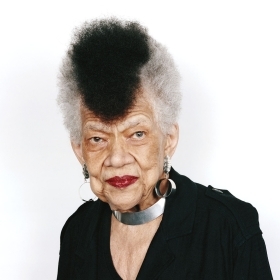

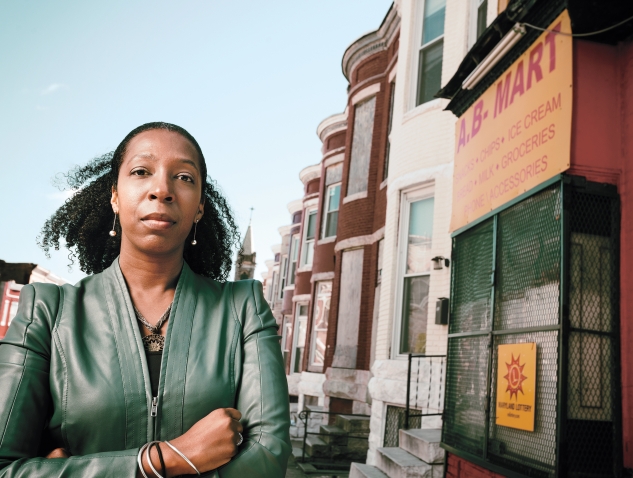


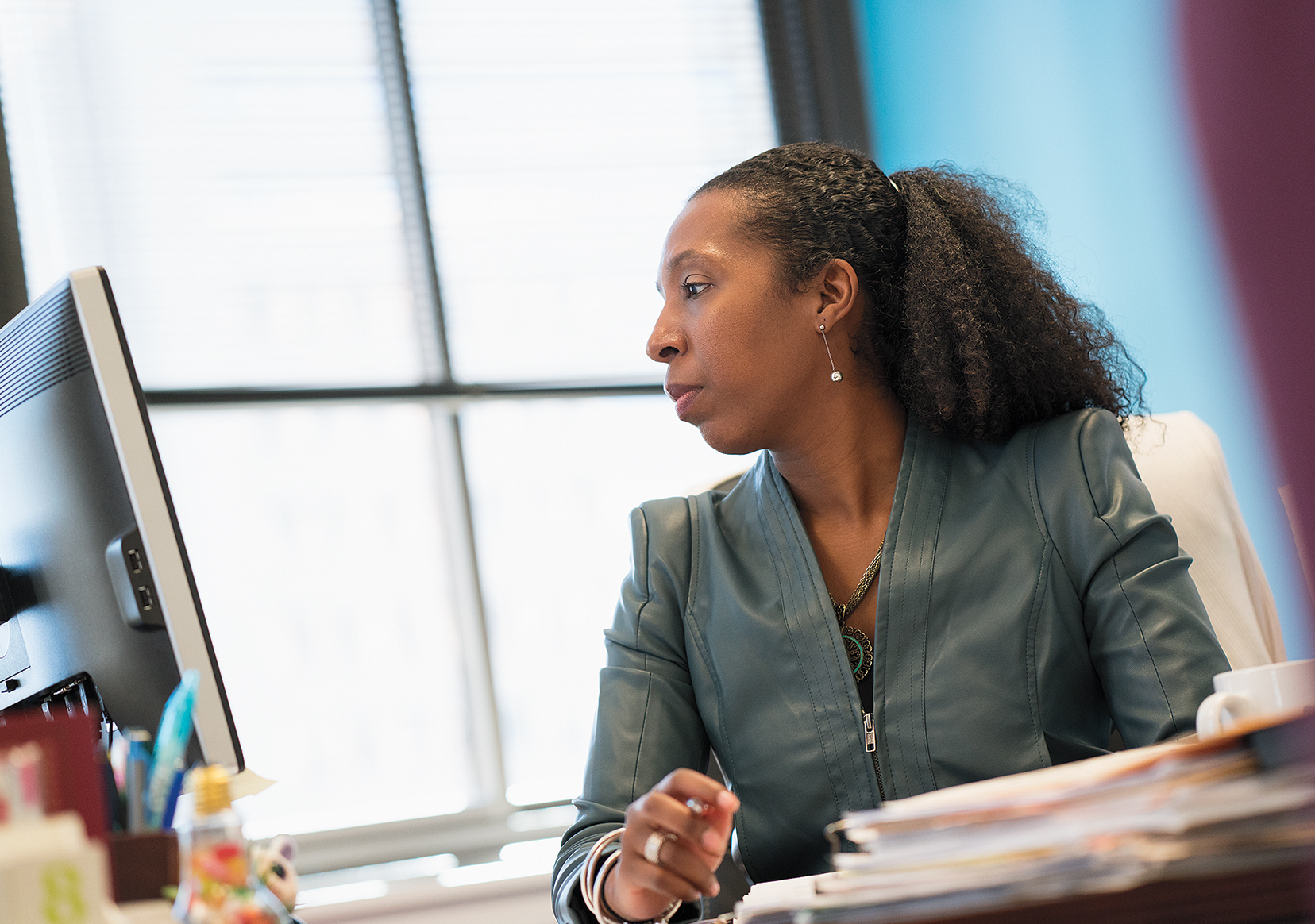




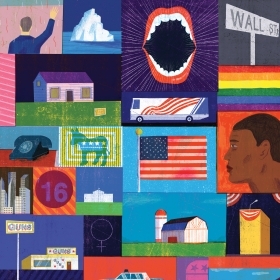
We ask that those who engage in Wellesley magazine's online community act with honesty, integrity, and respect. (Remember the honor code, alums?) We reserve the right to remove comments by impersonators or comments that are not civil and relevant to the subject at hand. By posting here, you are permitting Wellesley magazine to edit and republish your comment in all media. Please remember that all posts are public.